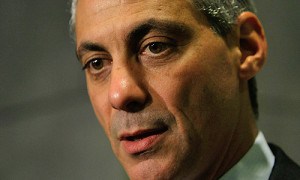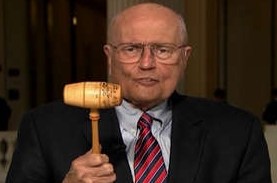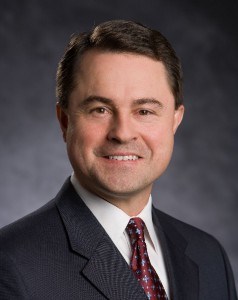Sen. Ted Stevens death last week in a plane crash has shined a light on increasingly cozy relationships between Alaska’s most powerful politicians and the special interests that court their support. Winning favor with a politician that can control and direct financial resources from Washington can secure your company millions in taxpayer dollars and legislative favors in America’s most rural state.
When he died, the former Alaskan senator was on his way, as an invited guest, to an isolated lodge owned and maintained for the use of executives at Alaska’s largest broadband provider — GCI. Time alone in the Alaskan wilderness delivered the ultimate captive audience for those the company sought to influence and Stevens was always a company favorite.
Accompanying Stevens on the doomed flight were GCI’s senior lobbyist Dana Tindall and William D. Phillips Sr., a lawyer, lobbyist and former chief of staff for Mr. Stevens. Both also perished in the crash.
Even after Stevens was voted out of office after being initially found guilty in a federal corruption trial, special interests like GCI continued to court Stevens, who all-too-willingly mixed business and pleasure — including the ill-fated fishing trip sponsored by the Alaskan telecom company.
Stevens didn’t go quietly out of politics after losing to Democrat Mark Begich in 2008. The New York Times noted he split his time between Washington and Alaska, providing “consulting” services and  worked on resource issues.
worked on resource issues.
His close connections to beltway politics kept him in favor among Alaska’s corporate interests, many of whom had supported Stevens financially and rhetorically for decades.
Tindall’s close relationship to Stevens paid GCI dividends in favors and support — both of which they returned in the form of generous campaign contributions, as the Times reports:
Ms. Tindall, 48, did not work for Mr. Stevens, but several people said they had a strong mutual respect and a warm rapport. She is credited with helping the company she worked for, GCI, grow rapidly in Alaska at the same time that Mr. Stevens was influential in telecommunications issues in Congress. He frequently brought members of the Federal Communications Commission to Alaska and helped steer money toward improving communications in rural areas. Another of his former chiefs of staff, Greg Chapados, is a vice president at GCI.
“Senator Stevens was instrumental in helping get a satellite project started so that people in Alaska could watch same-day television and live events,” said Mike Porcaro, a radio personality and advertising executive whose clients include GCI. Mr. Porcaro recalled not being able to watch live network television in Alaska as late as the 1970s. “We went from the 1800s to the 20th century in one day, mostly because of him,” Mr. Porcaro said.
Executives at GCI were generous campaign contributors to Mr. Stevens. Since 1994, Ms. Tindall was the most generous, donating $7,100 to his campaigns, records show. But in 2007 and 2008, as the corruption case surrounded Mr. Stevens, Ms. Tindall and other GCI executives gave less. Ms. Tindall initially gave $1,000 that year, though she later reduced the amount to $400.
Roberta Graham, a public relations executive and a close friend of Ms. Tindall’s, said Ms. Tindall and Mr. Stevens were “kindred spirits,” similarly tenacious and dedicated to their work.
GCI can afford to wine and dine Alaska’s politicians from the rate hikes they will visit on their broadband customers with a proposed Internet Overcharging scheme that will limit customers to how much Internet access they can enjoy.
That abusive pricing is something Senator Stevens would have undoubtedly supported, even if he lacked an understanding of its implications.
The late senator embarrassed himself in 2006 when he sought to defend his friends in the telecommunications industry against Net Neutrality. At one point, Stevens reduced the Internet down to a “series of tubes.”
But then companies like GCI didn’t contribute generously to his campaign for his broadband knowledge — they just wanted to make sure he was a safe vote in their column.


 Subscribe
Subscribe








